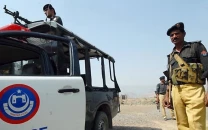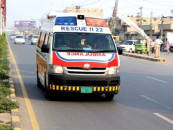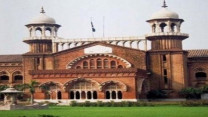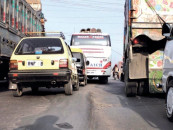The forgotten gurdwaras of Daska
City has oldest strategic trade route and cultural sites of subcontinent
1602488040-3/Daska-gurdwara-(4)1602488040-3-640x480.webp)
The city of Daska is one of the oldest regions of the subcontinent and has always been an important trade route and cultural centre with a colourful past.
The infrastructure of the historic city is different from other parts of the country.
At the time of the Partition, many members of the Sikh community left the region for modern-day India, leaving behind many gurdwaras and historic mansions, which still hold historical importance.
A gurdwara is usually composed of a large room in which Guru Granth Sahib is placed on the post in the middle with respect, while its doors are open all around.
No matter the direction of the book, a gurdwara can be one-storey, two-storey or three-storey. An almonry, colloquially known as Langar Khana, must be built in each gurdwara.
The historic Gurdwara Pehli Patshahi is located in the Fateh Bhandar village near Daska, which is historically significant but is now dilapidated.
Baba Guru Nanak, the spiritual leader of the Sikhs, on his return from Jammu and Kashmir, stayed with his followers in Fateh Bhandar village for a few days. From here he moved to Kartarpur, after which a gurdwara was built there and Sikh pilgrims from far and wide started arriving here.
A Sikh almonry was also built along with the gurdwara. Sikh pilgrims who came to the gurdwara were given a silver coin on their return.
Baba Afzal, a resident of the area, said that along with former Indian prime minister Indira Gandhi, many members of Sikh community came to Gurdwara Pehli Patshahi, Fateh Bhandar and every year pilgrims also come here for Darshan.
This gurdwara is an example of its own in terms of aesthetics. There are 100 windows and doors on all four sides of the gurdwara and there is decorative work on them.
Its floor is made of marble stones in which Kandakari work had also been done. On the inner and outer walls of the gurdwara are inscriptions in Punjabi language. Over time, the building has become dilapidated due to the neglect of the local administration.
Aslam, a local villager, said that since the 2005 earthquake, there have been many cracks in the building’s walls and roof, while the roof on the second floor had collapsed.
The windows and doors of the Pehli Patshahi Gurdwara are in a state of disrepair. The marble stones have disappeared. Grass has grown on walls and roofs.
Reportedly, the local residents have tied their cows and buffaloes around the place with disregard to its cleanliness.
Sajid, a villager, told The Express Tribune that many Sikh pilgrims used to come to the place but the road leading to the village was in a bad shape and the gurdwara building was dilapidated due to which the pilgrims had stopped coming.
Harbinder Singh, a Sikh pilgrim who was visiting the gurdwara, said, “The culture is being ignored and the temple needs to be repaired. If the government does not pay attention to this for long, this valuable asset will eventually just remain preserved in books.”
Published in The Express Tribune, October 12th, 2020.

1602488039-2/Daska-gurdwara-(3)1602488039-2.webp)
1602488039-1/Daska-gurdwara-(2)1602488039-1.webp)
1602488037-0/Daska-gurdwara-(1)1602488037-0.webp)
1602488037-4/Daska-gurdwara-(5)1602488037-4.webp)

















COMMENTS
Comments are moderated and generally will be posted if they are on-topic and not abusive.
For more information, please see our Comments FAQ